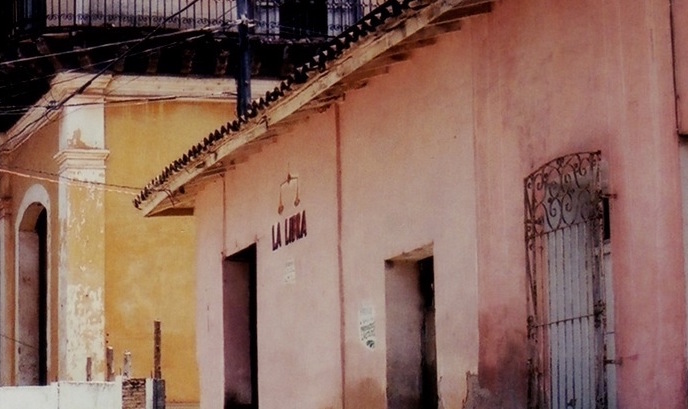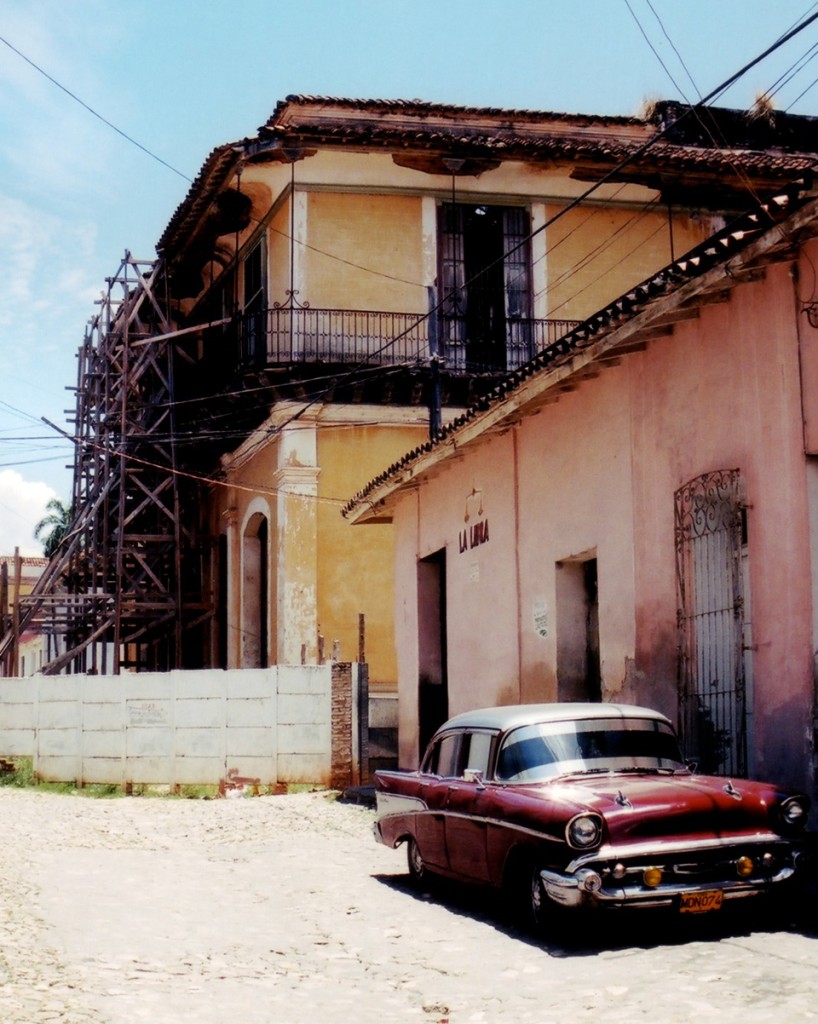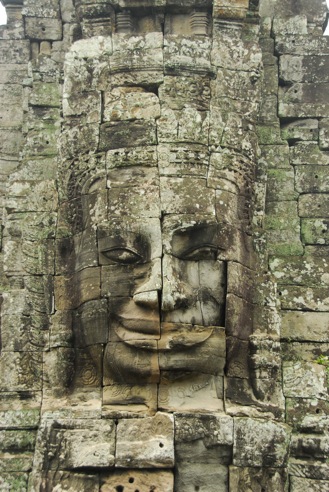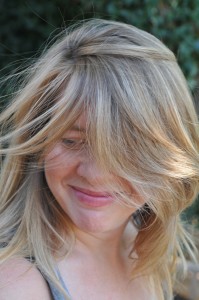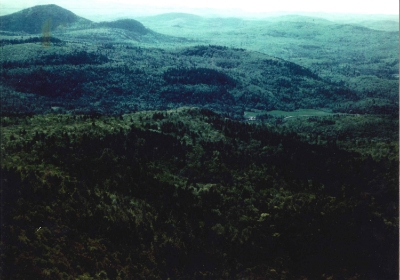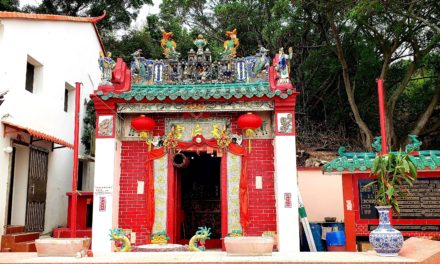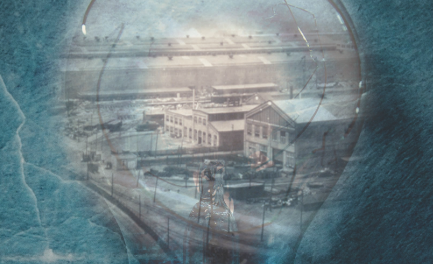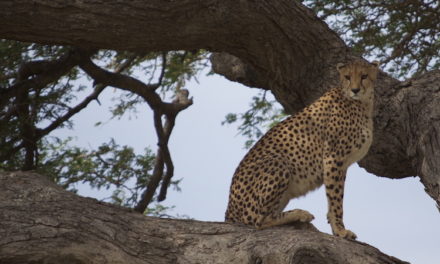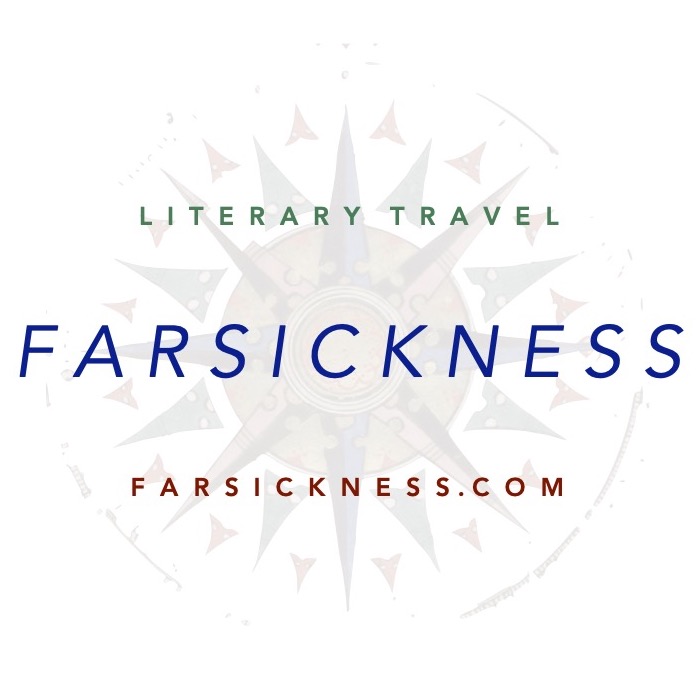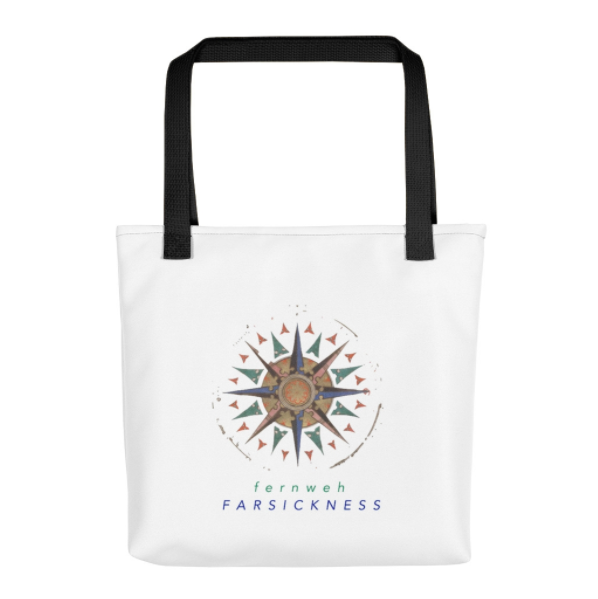Four Questions on Farsickness is an interview series with creative writers for whom place is essential to their work. Each writer answers the same four questions—and featured this week is award-winning travel memoirist and short story author, Alden Jones.
1. Share a little about where you’re from. When you were growing up, what place—real or imagined—most fascinated you, and why?
I grew up in New Jersey, so of course the most fascinating place in the world was Manhattan. But, like most voracious young readers, I traveled via books. I was as fascinated by the Dollangangers’ attic as I was by the plains of Siberia. I was drawn to any setting that wasn’t safe, predictable suburban America. Any place a book could transport me so fully that I would look up from the book and forget, for a second, that it wasn’t my life I was reading about.
Later, because I started studying Spanish at age ten and found it incredibly fun, I wanted to go where I could speak Spanish. I studied abroad in Spain as a high school student, but was always drawn to Central America. So after college and more Spain and more Europe, I found my way to Costa Rica as a WorldTeach volunteer English teacher.
2. What travel has been a particular inspiration to your work?
My first book, The Blind Masseuse: A Traveler’s Memoir from Costa Rica to Cambodia, is an exploration of the ethics of travel and covers fifteen years of my life as a traveler. I didn’t include every trip I took during those fifteen years, but all of the travel I did inspired the book. The Blind Masseuse begins during my year in Costa Rica, follows my travels as a backpacker and then a teacher in Bolivia, Nicaragua, and Cuba, and as a professor on Semester at Sea, mostly in Asia. But I was also much affected by a summer I spent in Paris, my first experience teaching travel writing in Italy, a research trip I took to Brazil, and I had quite a few (mis)adventures as a trip leader in Australia, New Zealand and Fiji. Why didn’t those experiences make it into The Blind Masseuse? I had to kill my darlings and do what made sense for the narrative, but as for the question of inspiration, every moment I spent as an American abroad contributed to the study of ethical travel. Especially the worst moments!
My second book, Unaccompanied Minors, is a collection of stories, two of which are set in Costa Rica. I was very motivated to write stories set in Costa Rica, because during and after my year there I could find so little literature that explored Costa Rican culture. Plenty on birds and beaches, of course, but almost nothing about what life was like for the people who lived in Costa Rica. I felt there was a real gap and I wanted to help fill that gap.
3. Where do you “escape to” to recharge creativity?
Provincetown, any artists’ colony, tropical tourist hotels in the off season. Now that I have three kids under five, nothing says “escape” like three uninterrupted hours in my home office.
4. Where would you most like to travel to next?
The novel I’m writing now is partially set in Cambodia, where I spent two days during my Semester at Sea travels. For some reason Cambodia really hit a chord for me and I’ve been obsessively plotting to return there once my kids are a bit older.
In the more immediate future, I’m excited to return to Cuba, where I spent three summers from 2001-2003. My friend and fellow writer Tim Weed and I are launching the Havana Writing Workshops in spring 2016. I haven’t been there in over a decade. Almost every Cuban friend I had has moved to Canada or Spain or the US, so it will be strange and a little sad. But Cuba, as everyone knows, has a tendency towards preservation, so I’m curious to see how it’s changed and how it’s stayed the same, especially with the recent lifting of restrictions on the US side. I’m someone who loves nostalgia. There’s a lot of that in Cuba, for me personally, and in general. Some people travel to see new places and get focused on the next place, and the next, but I love revisiting places that hold memories.
Alden Jones has lived, worked, and traveled in over 40 countries, including as a WorldTeach volunteer in Costa Rica, a program director in Cuba, and a professor on Semester at Sea. Alden’s collection of short stories, Unaccompanied Minors, won the New American Fiction Prize and an Independent Publisher Book Award in Short Fiction, was a finalist for the Edmund White Award for Debut Fiction, and was a Star-Ledger best book of 2014. Her memoir, The Blind Masseuse, was a finalist for the PEN/Diamonstein-Spielvogel Award, the winner of an Independent Publisher Book Award in Travel Essays and an IndieFab Book of the Year Award, and was named a top ten travel book by Publishers Weekly, the Huffington Post, and A Traveler’s Library. She lives in Boston, where she teaches at Emerson College and Grub Street. Find her online at aldenjones.com and on Twitter: @jones_alden.

